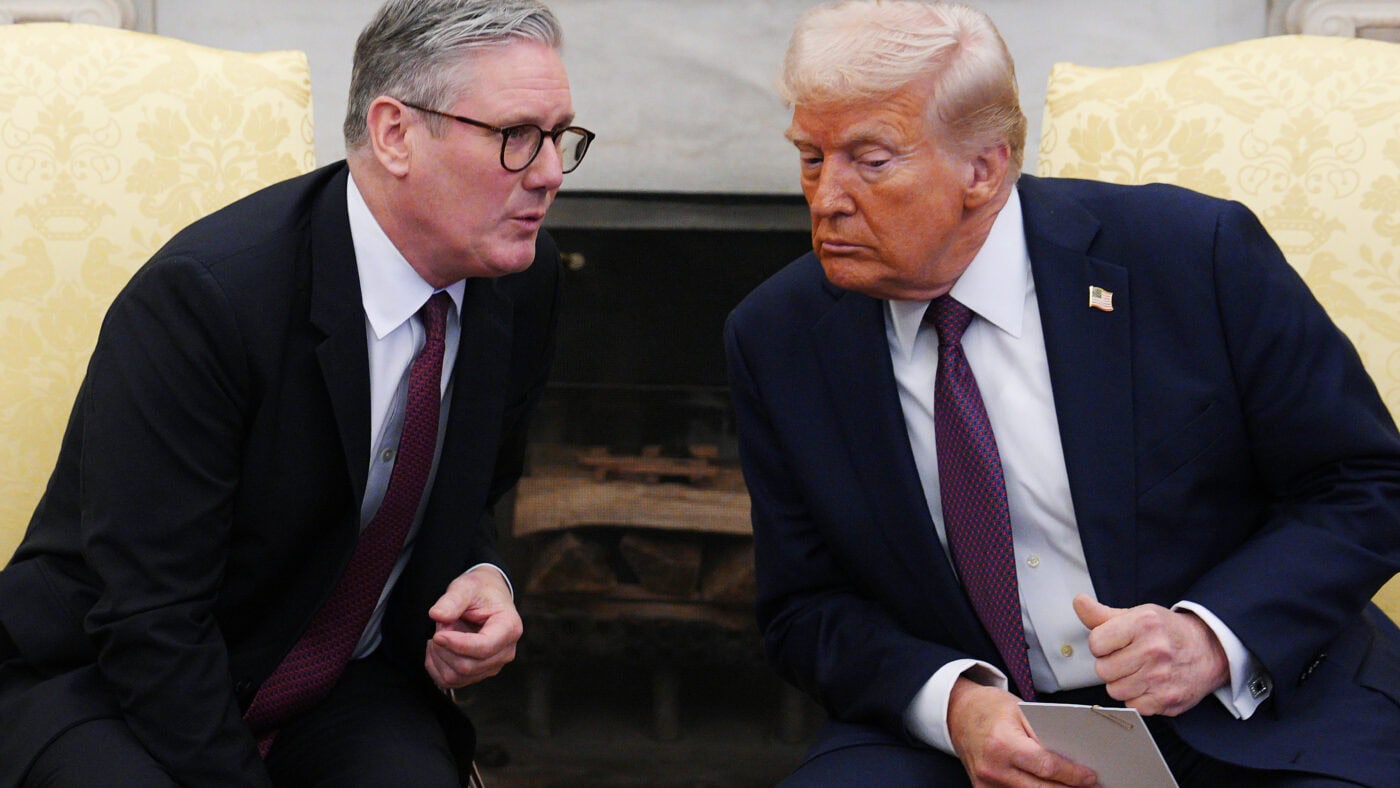The siren calls for retaliation against the US if Donald Trump imposes new tariffs on the UK remind me of this exchange from ‘Braveheart’…
Longshanks: Archers!
English Commander: I beg pardon, sire. Won’t we hit our own troops?
Longshanks: Yes… but we’ll hit theirs as well.
The serious point here is that tariffs hurt people in the country imposing them, not just those in the country on the receiving end.
Put another way, the best response to someone else doing something stupid – raising tariffs that increase costs for their own businesses and households – is unlikely to include doing the same stupid thing yourself.
Some argue that tariffs help to ‘bring jobs home’. In fact, both economic theory and experience (including from Trump’s first term) show that any jobs gained in protected sectors are more than offset by losses in others, as prices rise and productivity falls.
Even some people who say they are against tariffs are willing to argue that we should impose new ones on the US to give us ‘leverage’, and that President Trump admires ‘toughness’.
But no-one can really be confident how Trump will react. He might just escalate further, or not care. It is therefore surely better to avoid the certain harm that imposing tariffs would do to our own economy.
In fact, I would go one step further and actually reduce tariffs on imports from the US. Regardless of how Trump responds, British consumers would be better off.
Unfortunately, even this may not have much impact on the bigger picture. All major economies will be hurt by a global trade war, including the US. The best hope for the UK is that the services-led British economy may be hit less hard than others, but the fallout will still be painful.
The amount of this damage will depend on at least five unknowns.
The first is whether President Trump actually goes ahead with his threats to impose additional tariffs and, just as importantly, how long any tariffs last (perhaps not very long). Nothing is certain here, though the uncertainty itself is harmful.
The second is whether the US is willing to make any exceptions for the UK. It helps that UK-US trade is relatively balanced, but this is only one of several factors that Trump will take into account.
In particular, the UK may still be in the firing line because Trump regards VAT as a discriminatory tariff on imports, even though it also applies to domestic goods and services.
Moreover, Trump seems determined to press ahead with tariffs that target specific sectors, such as cars, and not just specific countries, such as Canada. This will make it harder to carve out exemptions for the UK.
The third unknown is how other countries will respond. Almost every economist agrees that tariffs are bad and that retaliating with tariffs of your own just makes the impact worse. Nonetheless, bad economics can sometimes be good politics. Canada and the EU have already signalled their intention to ‘fight back’.
This is likely to backfire. The OBR has estimated that UK GDP will be 0.6% lower than otherwise next year if the US imposes additional global tariffs of 20%. But this hit would increase to 1.0% if other countries, including the UK, are daft enough to impose reciprocal tariffs on the US.
The fourth unknown is whether there might be any small (but only partially offsetting) gains to the UK from the resulting changes in world trade. For example, consumers might benefit from lower prices for some goods, such as cars, if producers in the EU and Asia redirect stock to the UK market which they can no longer sell into the US.
Fears of a global downturn could also depress the prices of industrial commodities that we import, including oil and gas.
The fifth and final factor is how financial markets respond, especially the bond market. This is particularly important for the UK both because the cost of government borrowing here has been tracking that in the US closely, and because the Chancellor’s headroom against her fiscal targets is already vanishingly small.
The impact on borrowing costs could go either way, depending on whether central banks and markets give more weight to the downside risks to economic growth or the upside risks to inflation. But any further increase in gilt yields will add to the fiscal risks from slower growth.
In turn, this may require more tax hikes and more painful spending cuts, reinforcing the ‘doom loop’ that is already strangling the UK economy.
In the meantime, though, the UK can at least try to sit out the global trade war, rather than rush to join in.
This article was originally published on Julian Jessop’s blog, ‘Plain-speaking Economics’.
Click here to subscribe to our daily briefing – the best pieces from CapX and across the web.
CapX depends on the generosity of its readers. If you value what we do, please consider making a donation.


